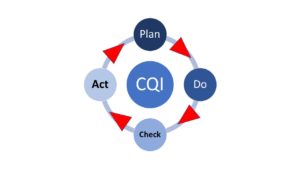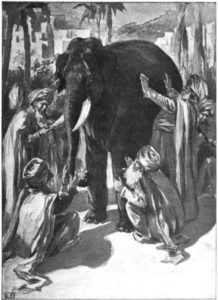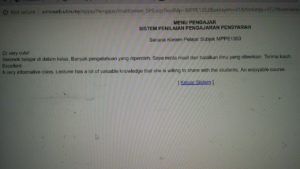Alhamdulillah. I have finished marking all of the assignments and exam scripts. Now, it is time for me to prepare the report via OBE system. But before that, let’s jot down some of the points that I want to include as parts of my CQI in my OBE report.
Assignments: I had given my UG students two types of assignments: Individual and group assignment. For the individual assignment, they have to create a concept map for each topic discussed. To assist them, I suggest they submit it on weekly basis, not compulsory though. Majority submitted their concept maps religiously every week. Only a few of them NEVER did that, not even once.
As I graded their concept map assignment, I notice that one student did not submit his assignment. I also remember quite well that he never submitted any concept map before. When I look closely at his overall performance, he could not do well for individual tasks like final exam, quiz and such. This shows that he is struggling but he never told me anything when I asked them in class or never even once let me know through other means. He is the quiet type in class. When I did a jig saw activity in class, I notice that he is the “listener” type. When he was urged by his friends to give his opinion, he did not elaborate in detailed, rather give short explanation. But, it does not explain why he failed to submit the concept maps. After all, I told them that to be self-regulated learners, they need to have certain routines. To create a concept map means that they need to understand the overall concepts (and its interconnectivity). It is not an easy process. After getting my feedback, they could improve their concept maps which many did so and it can be exemplified by the marks they got. Doing all these would involve them to engage in all of the process of three different phases based on self-regulated model as proposed by Zimmerman.
On the exam day itself, I told them (via Whatsapp) to double check whether they have done their second quiz on the elearning and those who did not submit their concept map after the exam can do so by going to my office on the next day to submit their concept maps. I did remind them about the course work even during exam period. Now, the exam period has ended, so it is kind of pointless for me to bug them during their holiday about the course work.
For the group work, there are no glitches that I was not aware of. Alhamdulillah, the students were proactive to meet me and discuss about their group assignment. So, all of the groups did well. They are also reflective about the things that they observe at schools. Some groups did interview. During the presentation day, one of the guys (Yusri) wore full attire with a coat. I gave a special mark for this because he makes the attempt to be presentable. The only person who did so.
Final examinations: There are two types of exam questions given (MCQ and short answer questions) for 40 marks. Even though it is stated the marks would be 60%, but we convert it into 40% later on. I find that some students could answer the short answer questions really well. Some of them got full marks. However, some of them did not able to answer one or two questions. Few even just “skipped” and didn’t answer one or two questions at all. So, they lost 10% right there and then. What a lost! But, it is their choice. I have no right to question their decision of leaving few questions unanswered. I should be emphatic in this case.
Overall: Some of the students did very well. They got more than 80% marks. Good job! Well done!
CQI: Based on student performance, I plan to revise my instruction for the both assignments. I think the current instruction is not being perceived as emphasising self-directed learning by some students. Based on the feedback that students gave on concept map assignment, some perceive it does help them to study or revise. In this case, they perceive it as a burden despite the evidences i.e. journal of concept map research that I show them [I suspect that they do not read the journal articles that I shared in elearning]. But, majority perceive that concept map is useful, so I will retain this activity in future.





